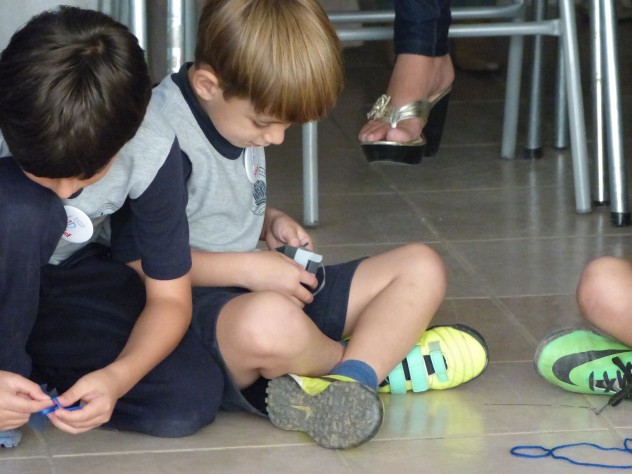By Kieran Egan
Now there’s a good slogan: It takes no longer to be interesting than it does to be boring.
It makes its point crisply and in a way that inclines people to want to agree with it. That’s the value of slogans, of course. The downside of slogans is that they don’t always stand up to close inspection. Let’s see how this one does.
Does an interesting lesson on, say, algebra or physics, or history, take no longer to plan and teach than a boring one?
The main message in this slogan is, of course, that we make choices in teaching and that choosing to teach in engaging ways does not necessarily mean more work, or time, than choosing to teach in boring ways. No one, after all, aims to be boring to their students, so the slogan strikes a cord with most teachers. It is comforting to think that the time we do put into our planning is going to pay off in interested students.
In the Imaginative Education Research Group, or IERG, we believe that engaging students’ imaginations
pretty well guarantees not being boring, and usually also guarantees more effective learning. When talking with teachers, IERG members suggest that the Imaginative Education principles, programs, and practices designed to engage students’ emotions and imaginations in learning take a teacher no longer to use in the classroom than practices better suited to putting students to sleep.
But is it true?
Does an interesting lesson on, say, algebra or physics, or history, take no longer to plan and teach than a boring one? Let’s return to the slogan for a moment. It builds upon the belief that interested and imaginatively engaged students will learn more effectively than bored students. Put like that, of course, you might be immediately inclined to agree—which is, of course, the purpose of a successful slogan.
What we try to show in the IERG is that taking an imaginative approach is not a matter of spending a lot of time amassing more, and more elaborate, resources. Resources alone do not equate directly with engaging teaching. We have all seen lessons that have been elaborately prepared, yet bombed for one reason or another. We have also seen lessons that were prepared while walking down the corridor to the classroom, after a sleepless night with a sick child, and, thus with minimal preparation, go wonderfully well. Often we take this as serendipity.
One of the things IERG members do in workshops is to ask teachers to describe classes that have gone wonderfully well for them, and then also classes they remember as having been disasters. We then examine them.
Almost invariably we find that success or failure seems to have almost nothing to do with the time or energy spent on preparation and teaching, and almost everything to do with the use of imagination-engaging cognitive tools in the lesson.
The IERG has tried to demonstrate that we can characterize a set of cognitive tools, which children pick up during their lives through interactions with the world around them, and which are components of what imaginatively engages their minds at different ages. The key to effective teaching is learning to deploy these tools in everyday teaching. (The Tools of Imagination Series discusses each of these tools individually. Check it out!)
So maybe it does take no longer to think of the content of a lesson in terms of those cognitive tools as it does to prepare the content in some form that does not use them. Time and energy spent in preparation are not as important as how one thinks about the content to be taught. The IERG provides resources to show how one can “think differently” about the content, and tries to show how teaching this way does not demand more time and energy than less engaging and productive ways of teaching.
 Final Thoughts
Final Thoughts
Let me leave you with this: “interesting” doesn’t necessarily mean glitzy or elaborate. It is a perspective—your perspective on a topic and, thus, how you shape it for students. Subscribe to this blog today if you would like to take on an engagement-focused approach to teaching—it takes no more time to be interesting!
What have you got to lose?
Learn More
Subscribe today. It’s EASY! CLICK the box to the right of this post or on the bottom right corner. Get a weekly email including tips and strategies for imagination-focused teaching. Don’t miss free resources and links for K-12 mathematics, SS, languages, and science teaching.

